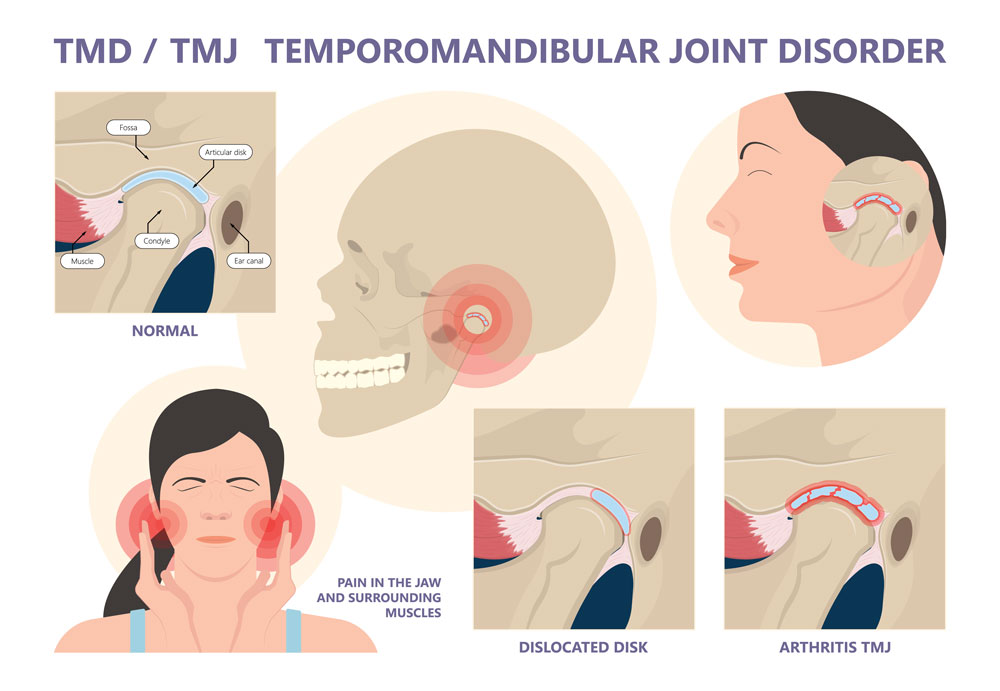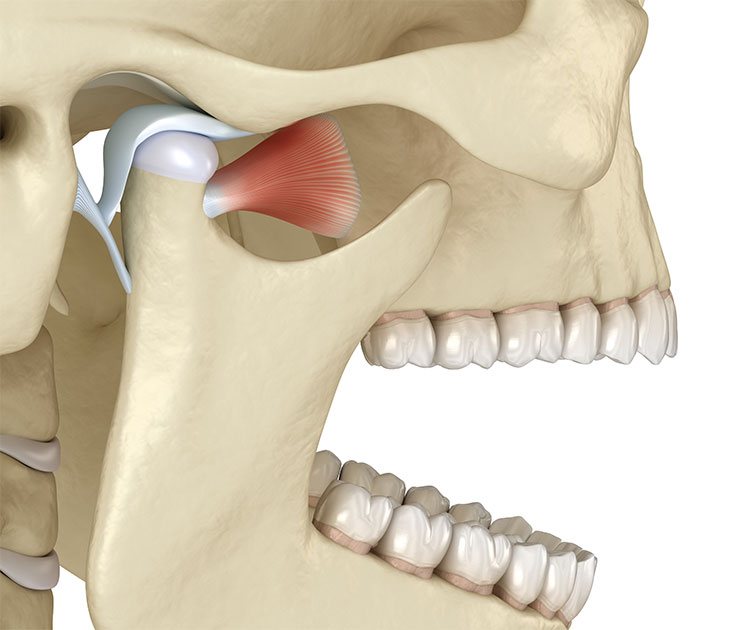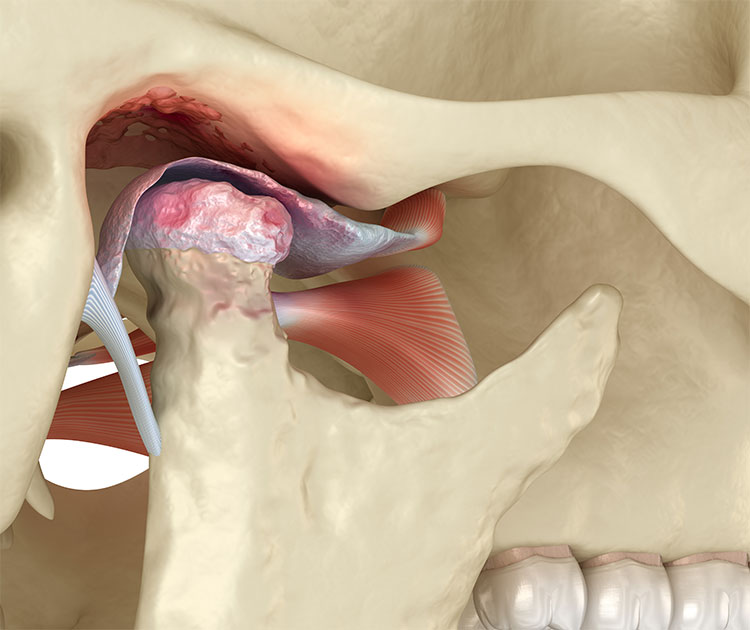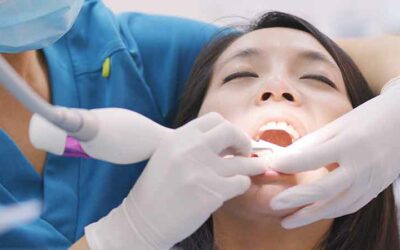Understanding TMJ Jaw Pain and Seeking Specialist Help
Navigating the complexities of jaw pain requires a deep dive into the various causes and conditions that lead to Temporomandibular Joint (TMJ) disorders, a common yet often misunderstood issue affecting many. Under the expert guidance of Dr. Alexandre Aalam and Dr. Alina Krivitsky, we will explore the intricacies of TMJ disorders, shedding light on symptoms, potential treatments, and the vital role of professional dental care in alleviating discomfort and enhancing oral health. Keep reading to empower yourself with the knowledge needed for a healthier smile and a more comfortable life.
What Are TMJ Disorders?
Temporomandibular joint (TMJ) disorders occur when issues arise in the muscles or the joint connecting the jawbone to the skull. These disorders can cause discomfort and pain in various areas, including the jaw, ear, and the muscles responsible for jaw movement.
While pinpointing the exact cause of a person’s Temporomandibular disorders (TMDs) can be challenging, it is often a complex interplay of factors such as genetic predisposition, underlying arthritis, or a history of jaw injury. Understanding the multifaceted nature of TMJ disorders is crucial in developing effective treatment strategies and providing relief to individuals experiencing these symptoms.

Recognizing Symptoms That Call for a Periodontist Visit
Are you experiencing any of the following symptoms related to your jaw? If you answer yes to any of these questions, it might be time for you to schedule a visit to a periodontist:
- Do you experience persistent pain or tenderness in your jaw, especially when you try to open your mouth wide or chew your food?
- Are you having difficulty chewing, or do you feel discomfort in and around your ear when you eat or speak?
- Have you noticed any locking of the joint, making it challenging to fully open or close your mouth?
- Are you experiencing aching pain in your face, particularly in the jaw area, that persists throughout the day?
These symptoms may indicate a potential issue with your temporomandibular joint (TMJ) and should be evaluated by the TMJ specialists at our Los Angeles office.

Diagnosing TMJ Disorders in Los Angeles
At the Center for Advanced Periodontal & Implant Therapy, Dr. Aalam and Dr. Krivitsky conduct a comprehensive physical examination of your head, neck, face, and temporomandibular joints. During this thorough assessment, they carefully evaluate various aspects, including pain levels, tenderness, any sounds that occur during jaw movement, range of motion, teeth alignment, and even potential facial bone deformities.
This extensive and detailed evaluation allows us to accurately diagnose your condition and craft a tailored treatment plan specifically designed to address your unique needs and concerns with the utmost precision and effectiveness.
Managing TMJ Disorders: From Self-Care to Advanced Treatments
Many cases of TMJ disorders are temporary and can be managed with self-care practices or non-surgical treatments.
- Anti-inflammatory medications: Over-the-counter pain relievers such as ibuprofen or naproxen sodium can help alleviate pain and discomfort caused by TMJ disorders.
- Splints or mouth guards: These dental devices are designed to prevent teeth grinding and provide protection during sleep.
- Eating soft foods: Opting for soft foods can help alleviate the stress on your teeth and jaw muscles, reducing the likelihood of grinding.
- Applying ice packs: Applying ice packs to the affected area can help alleviate discomfort and reduce inflammation caused by teeth grinding.
- Night guards: Night guards are custom-made dental appliances worn during sleep. They provide a more advanced treatment option for teeth grinding.
- Botox injections: In some cases of severe teeth grinding, Botox injections may be recommended. Botox can help relax overactive muscles in the jaw, reducing grinding and associated symptoms.
- Cutting-edge Infrared Light Therapy: Another advanced treatment option is Infrared Light Therapy. This innovative therapy utilizes infrared light to target and alleviate the underlying causes of teeth grinding, providing effective relief.
These treatments can help address teeth grinding and provide relief from associated symptoms. It’s important to consult with our Los Angeles periodontists to determine the most suitable treatment approach for your specific needs.

Temporomandibular joints healthy occlusion

The Role of Periodontists in Managing Jaw Pain
Periodontists play a pivotal role in diagnosing and treating jaw pain, especially when it comes to complex conditions like Temporomandibular Joint (TMJ) disorders. At the Center for Advanced Periodontal & Implant Therapy, our team, led by Dr. Alexandre Aalam and Dr. Alina Krivitsky, creates personalized treatment plans tailored to address your unique needs. Our expertise and cutting-edge techniques provide effective management options that go beyond expectations, restoring your oral health and enhancing your overall well-being.
Why Visiting a Periodontist is Essential for TMJ Treatment
When discussing TMJ disorders, the specialized expertise of a periodontist becomes invaluable. Unlike general dentists or medical doctors, periodontists undergo extensive training focused on the gums, jawbone, and temporomandibular joint, offering a deeper understanding of the complexities involved in TMJ disorders.
- Specialized Knowledge and Training: Periodontists have specialized knowledge in the structure, function, and diseases that affect the jaw and its supporting tissues, making them uniquely qualified to diagnose and treat TMJ disorders.
- Comprehensive Diagnostic Capabilities: With access to advanced diagnostic tools, periodontists can accurately identify the root causes of TMJ disorders and address both symptoms and underlying issues.
- Targeted Treatment Plans: Periodontists’ specialized training allows them to develop tailored treatment approaches, potentially including periodontal treatments, bite adjustments, and surgical interventions, to manage TMJ disorders effectively.
- Collaborative Care Approach: Periodontists often collaborate with other specialists to provide comprehensive care, ensuring all aspects of the TMJ disorder are addressed for the best possible outcomes.
Incorporating periodontists’ unique perspectives and capabilities into treating TMJ disorders underscores the importance of specialized care in managing jaw pain. By leveraging their extensive training and state-of-the-art diagnostic tools, periodontists like Dr. Aalam and Dr. Krivitsky can offer targeted, effective treatments beyond what is possible in a general dental or medical setting.
The Benefits of Early Intervention for TMJ Disorders
Early intervention when dealing with TMJ disorders is critical, as it can significantly improve the prognosis and reduce the risk of complications. Addressing TMJ symptoms promptly allows for the following:
- Minimized Damage: By treating TMJ disorders early, there is a better chance of minimizing damage to the jaw joints, muscles, and teeth, which can become more extensive if left untreated.
- Prevention of Worsening Symptoms: Early treatment can prevent symptoms from becoming chronic and more difficult to manage.
- More Conservative Treatment Options: With early diagnosis, simpler and less invasive treatment methods can often be effective, potentially avoiding the need for surgery.
- Improved Quality of Life: Early management of TMJ disorders can alleviate pain and discomfort, improving one’s ability to eat, speak, and engage in daily activities without the burden of jaw pain.
- Cost Savings: Patients can often avoid more costly and complex treatments that may become necessary if TMJ disorders are allowed to progress unchecked.
Recognizing and acting upon the early signs of TMJ disorder can lead to a quicker resolution, enabling patients to enjoy a healthier, more comfortable life. If you think you might be experiencing TMJ issues, don’t hesitate to reach out to us today.
Further Understanding TMJ Disorders
After covering the comprehensive details about Temporomandibular Joint (TMJ) disorders, including symptoms, treatment options, and the critical role of periodontists, you may still have questions or concerns about TMJ disorders and how they can impact your life. To further empower you with knowledge and clarify some of the common inquiries we encounter, we’ve compiled a list of Frequently Asked Questions (FAQs). This section addresses your immediate concerns, making your journey towards a healthier smile and a more comfortable life a bit easier.
Frequently Asked Questions (FAQs) about TMJ Disorders
What causes TMJ disorders?
TMJ disorders can arise from several factors, including genetics, arthritis, jaw injury, or habits like teeth grinding. Often, it’s a combination of these factors that leads to the condition.
How do I know if I have a TMJ disorder?
Symptoms of TMJ disorders include jaw pain or tenderness, difficulty in chewing, locking of the jaw joint, and aching pain around the ear. If you experience any of these symptoms persistently, it’s advisable to consult a periodontist.
What treatment options are available for TMJ disorders?
Treatments range from self-care practices and non-surgical options like mouthguards and anti-inflammatory medications to more advanced options such as Botox injections or infrared light therapy. The choice of treatment depends on the severity of the disorder.
Are TMJ disorders permanent?
Many TMJ disorders are temporary and can be effectively managed with the proper treatment. However, early intervention is crucial to prevent the condition from worsening.
What can I expect during a consultation for TMJ disorders?
During your consultation, expect a comprehensive examination of your jaw and bite, a discussion of your symptoms, and a review of your medical history. Based on this, a personalized treatment plan will be devised to address your specific needs.
How long does recovery from TMJ treatment take?
Recovery time varies depending on the treatment. Non-surgical treatments may offer immediate relief, whereas more advanced therapies might require a few weeks to show significant improvement. Your periodontist will provide you with a detailed recovery timeline based on your treatment plan.
Can TMJ disorders be prevented?
While not all TMJ disorders can be prevented, you can reduce your risk by avoiding excessive jaw movements, practicing stress-reduction techniques, and using mouthguards if you grind your teeth.
Does insurance cover TMJ treatment?
Coverage varies by insurance plan and treatment type. It’s important to check with your insurance provider and the dental office to understand what is covered under your plan.
Do I need to see a specialist for TMJ disorders?
Yes, seeing a specialist like a periodontist with advanced training in the structure and function of the jaw can provide more targeted and effective treatment for TMJ disorders.
Can TMJ disorders affect my overall health?
While TMJ disorders primarily affect the jaw and surrounding areas, they can impact the overall quality of life by causing pain, discomfort, and difficulty eating. In some cases, untreated TMJ disorders might lead to more significant health issues, underscoring the importance of seeking professional help.
As we’ve explored the complexities of TMJ disorders and addressed some of the most common questions, it’s clear that understanding and addressing this condition is crucial for maintaining oral health and overall well-being. Jaw pain, while often temporary, should not be ignored. Early diagnosis and treatment can prevent further complications and significantly improve your quality of life.
Reserve Your Consultation
If you’re suffering from persistent jaw pain or suspect you might be experiencing symptoms of a TMJ disorder, don’t hesitate to seek professional help. At the Center for Advanced Periodontal & Implant Therapy, Dr. Alexandre Aalam and Dr. Alina Krivitsky are committed to providing expert care tailored to your unique needs. Please schedule an appointment with us today, and let’s work together towards a healthier smile and a pain-free future. Your well-being is our priority, and we’re here to support you every step of the way.
You May Also Like...
Stem Cells Tissue Regeneration: An Alternative to Classic Gum Graft
Gum recession is a common dental problem that affects millions of people worldwide. This condition occurs when the...
Deep Cleaning Teeth With Scaling And Root Planing
If you have gum disease, the best way to treat periodontitis is to remove hard-to-reach tartar buildup through scaling...
How Painful Is Gum Grafting Surgery?
Healthy gum tissue protects the roots of our teeth and the bone that supports them. Ideally, the gum tissue should...



